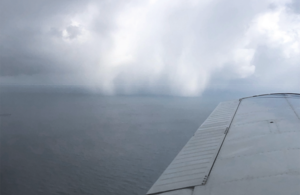Minister visits Gladstone Pottery Museum in Stoke-On-Trent
-
Cabinet Office Minister Nigel Adams promoted the Cultural Development Fund and explored his family links to pottery in Stoke-on-Trent
-
Gladstone Pottery Museum is set in a coal-fired pottery which was originally founded in 1787
-
Minister explored family roots to the area, pottery and shown historic artefacts
In the same week the government announced the second phase of the Museum Estate and Development Fund, Cabinet Office Minister Nigel Adams paid a visit to Stoke-on-Trent’s Gladstone Pottery Museum on Thursday 12 May, to promote the fund and explore his family links to Pottery and Stoke-on-Trent.
The site, which dates back to the 18th century, was of particular interest to the Minister, as it allowed him to explore his links to the pottery industry and hear how the museum is recovering after the pandemic.
The visit was also an opportunity for the Cabinet Office Minister to speak to the leaders of Gladstone Pottery Museum about the financial support that is available from round two of the government’s Cultural Investment Fund (CIF).
Within the fund is the £63.3 million Museum Estate and Development Fund (MEND), which will be divided over the next three years. MEND helps fund urgent museum maintenance and infrastructure works beyond their day-to-day budgets.
Following a meeting with employees, Minister Adams was given a tour of the museum and talked with curator Ben Miller about his family links to the Adams and Co. pottery company – which was created by William Adams in Stoke, Staffordshire in 1769. He was also shown the famous teapot that was used to serve tea to ‘Bonnie Prince Charlie’.
It is reported that William Adams, born in 1746, was one of the earlier potters to create from Stoke-on-Trent, the home of The Potteries, and came from a long lineage of potters, spanning many generations. Adams founded the Greengates Pottery in 1779 and stamped all pottery with the name ‘Adams & Co.’
Minister Nigel Adams said:
Stoke-on-Trent is synonymous with the pottery industry, not just in the UK but globally.
It’s been fantastic to come to Gladstone today and learn more about my family’s links to the pottery industry and local area.
It was good to speak to the staff about how this government is significantly investing in the tourism and leisure industry to ensure that attractions like this remain open to the public for decades to come.”
Located in a coal-fired pottery, originally founded in 1787, the museum opened in 1974, and won VisitEngland’s ‘Small Visitor Attraction of the Year’ award in 2020.
It has recently been used as the filming site for Sky’s ‘The Colour Room’ – based on the life of Stoke-on-Trent ceramic artist Clarice Cliff and how she went from working in the Potteries in the 1920s to becoming one of the greatest ceramic designers.
The holdings of the Museum Service across its sites, including the Gladstone Pottery Museum, are considered a designated collection of outstanding importance, demonstrating immense richness and variety.
Recognising the tourism, leisure, and hospitality sector had been severely impacted by the pandemic, Minister Adams also wanted to hear how the museum was recovering from the pandemic and lockdowns, whilst highlighting that the government has provided the arts and culture sectors around £2bn.

